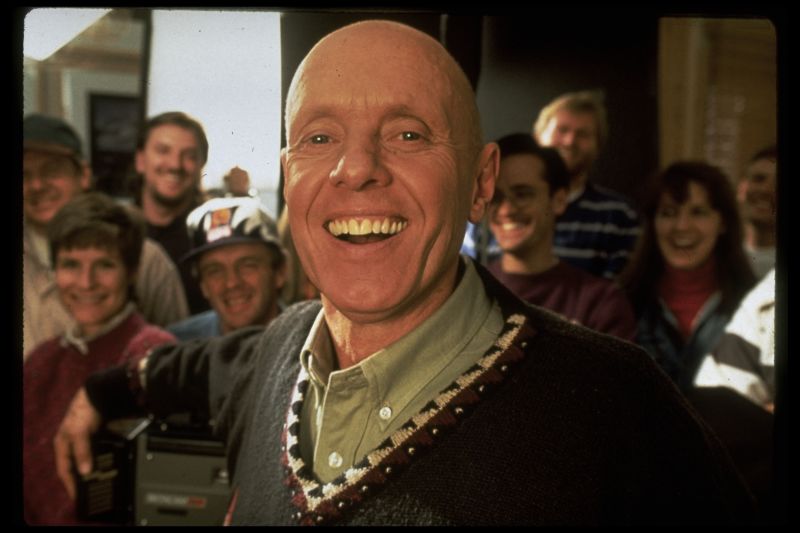

Franklin Covey: In 1997, the Covey Leadership Center merged with Franklin Quest to form Franklin Covey, a global professional services firm and retailer selling training and productivity tools. Covey and Associates which in 1987 became The “Covey Leadership Center.” Covey Leadership Center: In 1985 Covey established Stephen R. Covey believes that values govern people’s behavior, but principles ultimately determine the consequences. Principles and Values: Covey sees principles as external natural laws, while values remain internal and subjective. publishing history to sell more than one million copies. First non-fiction Audio-Book: The audio version “The 7 Habits of Highly Effective People” became the first non-fiction audio-book in U.S. The 7 Habits of Highly Effective People: Covey’s best-known book, “The 7 Habits of Highly Effective People”, publication in 1989, has sold more than 25 million copies worldwide. Doctoral Dissertation: Covey was influenced by his study of American self-help books that he researched for his Ph.D.  Education: Covey earned a Bachelor of Science degree from the University of Utah, an MBA from Harvard Business School at Harvard University, and a Doctor of Religious Education from Brigham Young University. Mother: Stephen Covey’s mother was the daughter of an apostle and counselor in the first presidency of The Church of Jesus Christ of Latter-day Saints. Born: Stephen Richards Covey, 1932, Salt Lake City, Utah, U.S. Interesting Facts and Insights about Stephen Covey
Education: Covey earned a Bachelor of Science degree from the University of Utah, an MBA from Harvard Business School at Harvard University, and a Doctor of Religious Education from Brigham Young University. Mother: Stephen Covey’s mother was the daughter of an apostle and counselor in the first presidency of The Church of Jesus Christ of Latter-day Saints. Born: Stephen Richards Covey, 1932, Salt Lake City, Utah, U.S. Interesting Facts and Insights about Stephen Covey 
Denial of any of these reduces or diminishes an individual, inviting many problems. The eighth habit is, “Find your voice and inspire others to find theirs.” The central idea of the book is the whole person paradigm, which holds that persons have four aspects – physical, intellectual, emotional, and spiritual. The 8th Habit: From Effectiveness to Greatness was written by Stephen R. “Sharpen the Saw” is about continuous improvement in the personal and interpersonal spheres of influence. “Synergize!” is about combining the strengths of people through positive teamwork, to achieve goals that no one could have done alone. This, in turn, compels them to reciprocate and take an open mind to be influenced by you. “Seek First to Understand, Then to Be Understood” is about using empathetic listening to genuinely understand a person. Habit 5: Seek First to Understand, Then to Be Understood “Think Win/Win” is about a “win” for all is ultimately a better long-term resolution than if only one person in the situation had gotten their way. Priority should be given in the following order: Ths habit distinguishes between what is important and what is urgent. “Put First Things First”, talks about the difference between leadership and management. “Begin with the End in Mind” is about envisioning what you want in the future so you can work and plan towards it. “Be Proactive” is about taking responsibility for your reaction to your experiences, and to taking the initiative to respond positively to improve the situation. The audio version became the first non-fiction audio-book in U.S.

Covey’s book has sold more than 25 million copies worldwide. Covey presents an approach to being effective in attaining goals. The 7 Habits of Highly Effective People was first published in 1989, by Stephen Covey. Stephen Covey – Key Books and Big Ideas: The 7 Habits of Highly Effective People
The 8th Habit, and The Leader In Me - How Schools and Parents Around the World Are Inspiring Greatness. The 7 Habits of Highly Effective Families,. First Things First, Principle-Centered Leadership. Stephen Covey’s most popular books include: Huntsman School of Business at Utah State University at the time of his death. His most popular book is “The 7 Habits of Highly Effective People.” In 1996, Times magazine named him one of the 25 most influential people. Stephen Covey (1932 – 2012) was an educator, author, and businessman. Leadership and Management Advice Quotes by Stephen Covey. Business Advice Quotes by Stephen Covey. Interesting Facts and Insights about Stephen Covey. The 7 Habits of Highly Effective People. Stephen Covey – Key Books and Big Ideas. Stephen Covey – Habits of Highly Effective People – Contents







 0 kommentar(er)
0 kommentar(er)
